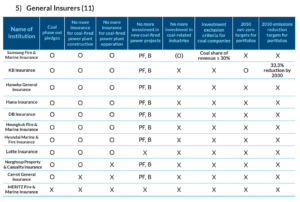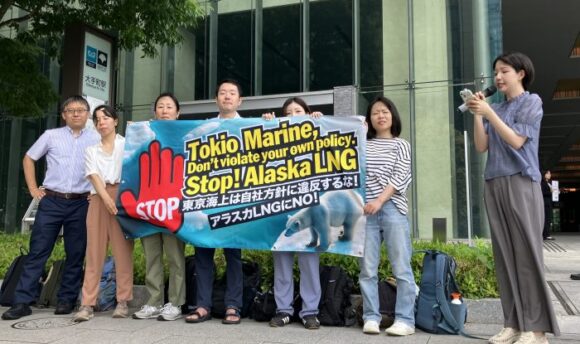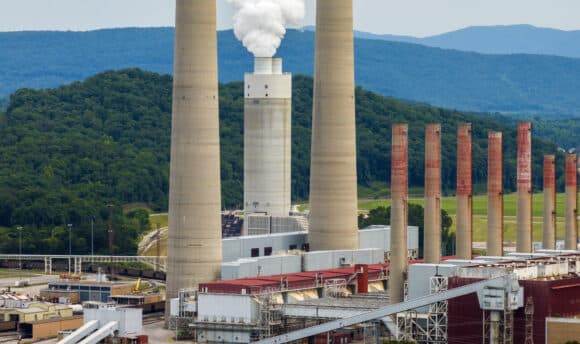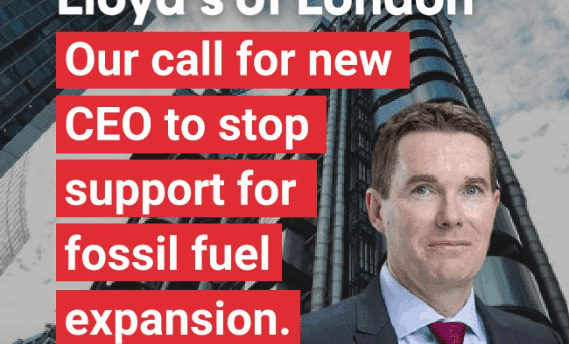Korean insurers have stopped providing coverage for the construction and operation of new coal-fired power plants finds new report
A majority of financial institutions in South Korea failed to meet global standards of divestment from coal, Solutions for Our Climate said in its Wave of Coal Exit Pledges in 2021, Still Lacking Effective Policies issue brief. Lack of substantial action to end coal financing will likely worsen Korea’s climate records, with already the second highest coal power emissions per capita in the world.
In the 17-page brief, Insure Our Future member Solutions for Our Climate reviewed 100 public and private financial institutions based in South Korea and found 97 of those businesses including banks, asset managers, securities firms, and insurers lacked sufficient policies to phase out coal. In addition, 70 of the 100 firms vowed to exit coal but 67 have banned investment or insurance only related to new coal-powered projects, which are already in decline globally.
"In spite of the call for OECD nations to end all coal use by 2030 to meet the world’s 1.5°C target, financial institutions in South Korea have not adopted tangible coal phase out policies. In line with actions taken by Korea’s global counterparts, we need to see faster divestment from the entire coal-related industry, from mining to manufacturing.”
Samsung Fire & Marine Insurance was South Korea’s largest private coal financier in 2020 but made internal decisions to divest from companies deriving over 30% of its revenue from coal power production and mining, according to the company’s ESG office. Samsung F&M also said it will no longer provide insurance for coal-fired power plant construction and operation. This policy would apply to the coal plants currently being constructed by Samsung Group affiliates including Vung Ang 2 in Vietnam and Gangneung Anin in South Korea. However, the firm has not made its coal divestment policies publicly available.
"Samsung F&M is still behind its global peers in spite of being a major player in the financial market. The company has the potential to raise industry standards around green finance by being transparent with its existing climate initiatives, expanding its coal policy to cover the entire coal supply chain, and having a concrete plan to phase out its existing exposure.”
MERITZ Fire & Marine Insurance is the only company without any coal policies among 11 general insurers. The rest have all pledged to exit coal, 8 among which have announced that they would no longer provide coverage for the construction and operation of new coal-fired power plants (Samsung FM, KB, Hanwha, Hana, DB, Heungkuk FM, Hyundai FM, Lotte and Nonghyup P&C). Lotte Insurance has announced its decision to stop underwriting new coal projects without mentioning investment restrictions, and Nonghyup Property & Casualty only has a policy to stop insurance for new coal plant construction.
Despite President Moon’s pledge to end overseas coal financing last April, South Korea has a long way to go. During the last decade, the country provided around USD 137bn in international public finance for fossil fuels, ranking above China and the United States between 2018 and 2020.
"Divestment from coal is only the beginning. South Korea was absent from COP26’s landmark deal to stop overseas fossil fuel financing but financial institutions can set new global standards by creating comprehensive and ambitious plans to exit from fossil fuel.”




